Scenes from the second alumni "Meet the Chef" night at Frontera Grill/Topolobampo
Due to popular demand, the University of Chicago Club of Chicago has set up a second night for a group outing to Frontera/Topolobampo. We hope the additional event will allow more alumni, parents, and friends to enjoy the widely acclaimed restaurants. We’ll dine in Frontera Grill’s Morales Room on a four-course, Topolobampo menu with wine pairings. We’ll learn about the cuisine and wine from sommelier Jill Gubesch and one or more of the restaurants’ famed chefs. Please note that Chef Rick Bayless’s attendance is not guaranteed.
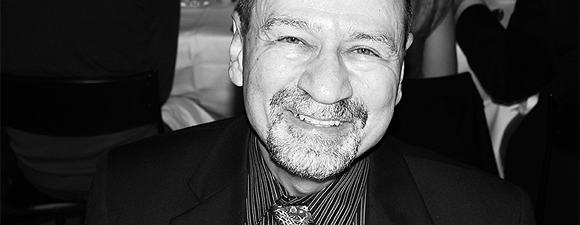
“OK, that’s a really bad angle,” says Beth Woods, AB’91. I’m trying to take photographs and interview alumni at the same time. The alumni are trying to get photographed and interviewed and enjoy their meal at the same time. It’s a little difficult.
I turn down the margarita I’m offered, so there’s no real reason why my first interview, with James Orr, U-High’61, SM’75, PhD’82, turns out like a vaudeville routine. I ask if he’s been to a fine-dining event like this before. “I think I have, but in my old age, I tend to forget which ones I’ve been to,” he says. How about other alumni events? “Occasionally I go to one of the financial discussions they have on Sundays, but that only depresses me.”
The table’s conversation turns to the appetizer. “There’s a very subtle pineapple flavor in the guacamole,” he says, and then I hear, “That depresses me.”
I’m confused. “That depresses you?”
“Impresses me,” he says. “Impresses.”
I ask him what he had for lunch. “No lunch,” he says. “For breakfast I went to the W Hotel, where I had a brioche. I eat abysmally, but someone from Reed College took me out for breakfast.”
“You went to two alumni events in one day?”
“Yes. Usually I just eat oatmeal,” he says. “For lunch I get the calorie-controlled meal at my hospital.”
I’m confused again. “Wait—you live in a hospital?”
“Yes. They let me out during the day,” he says. “No, I’m a pathologist at Resurrection.”
“At Resurrection.” I’m finally keeping up. “OK.”
“That’s not the right answer,” he says. “You’re supposed to say, ‘Come again?’”
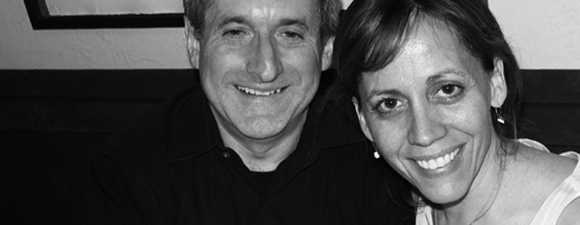
Having survived that interview, I turn to Floyd Elliot, AM’84, MBA’91. He tells me he just quit doing a food blog, called GGG (Gourmet Gourmand Glutton). “The first post was, ‘Why I’m off fine dining,’” he says. “Basically, every fine dining restaurant that opened in the last two years sucked, with very few exceptions. They were overhyped and underperforming.”
He and partner Paula Froehle (“I’m not an alumnus,” she says apologetically) have been to Frontera “many, many times,” he says. “I like the idea of meeting the chef. I am definitely a chef groupie.”
But does he have a secret guilty pleasure? “I will admit that I do kind of like KFC,” he says. “That [expletive deleted]’s kinda awesome. But other than that, I’m a pretty orthodox foodie.”
“Very orthodox,” adds Froehle.
“Yes. I wear the prayer shawl.”
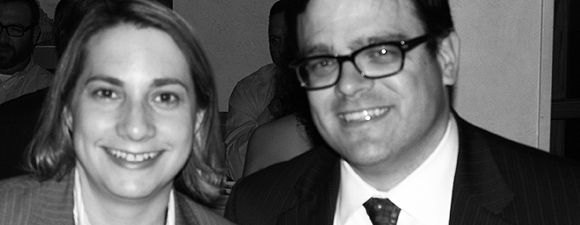
Rick Bayless is in Mexico, it turns out. Instead Richard James—one of two chefs Bayless took with him when he cooked at the White House—walks the foodies through the menu, while assistant sommelier Liz Martinez explains the wine pairings: Ceviche Yucateco (shrimp and calamari) with 2007 Brooks “Ara” Riesling; Sopa Azteca (chicken and avocado soup) with 2008 Mahi Sauvignon Blanc; Borrego en Mole Rojo (lamb in red mole sauce) with 2004 Francesc Sanchez-Bas “Montgarnatx” Priorat; and Crepas con Cajeta e Higos (crepes with goat milk caramel and figs) with 2004 Ernst Bretz “Bechtolsheimer Petersberg” Riesling Eiswein.
“This is my favorite restaurant in Chicago,” says Amy Gardner, JD’02, Dean of Students at the Law School and the event’s organizer. Because a second night was added, she and husband Keith Sbiral have enjoyed the same food and wines two nights in a row. It is also Gardner’s second fancy restaurant in a single day: for lunch she ate at Park 52 with another dean from the Law School.
Does she have any guilty pleasures? KFC possibly? “Ohhhhh noooo,” she says in disapproval, but then confesses a weakness for Dairy Queen, especially the peanut buster parfait. “We also like to eat at Superdawg,” she says. “That’s D-A-W-G.”
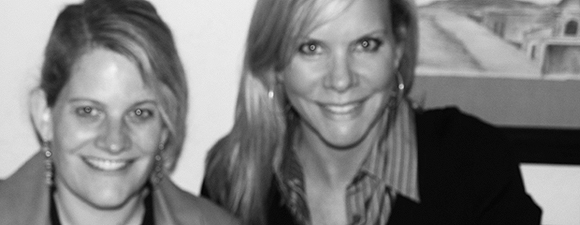
I attempt to take a picture of Gardner and Sbiral, from a bad angle that provokes Woods's critique and offer of assistance. Then it’s on to Woods, who’s come to the event with Elizabeth Johnson, AB’90. They were “peripheral friends” as undergrads, says Woods, and hadn’t seen each other for more than 20 years when they reconnected at a UChicago tasting event at Pastoral in February of 2009.
Since then they’ve tried to go to all alumni events held at nice restaurants. Do they ever cook at home? “I have sweaters in my oven,” says Woods. “Every part of my kitchen is used for clothes, except for one cabinet. I do have glassware, because I make a mean cocktail.”
Johnson is similarly estranged from her kitchen. When she lived in Washington, she told her cleaning lady not to bother with the burners. The cleaning lady pointed out, “They get dusty.”
Woods kindly offers to reshoot my incompetent photos. She turns the flash on, makes sure she’s angling down slightly rather than up, and, sure enough, her pictures look great. Sbiral reshoots my photo of Woods and Johnson—also an improvement.
I ask Woods if she has a guilty junk-food pleasure. “Anything with Easy Cheese,” she says. “Like cheese fries, nachos. Or bacon.”
Johnson laughs. “I was going to say bacon!”
Carrie Golus, AB'91, AM'93
All photos by Beth Woods except the final photo, which was taken by Keith Sbiral
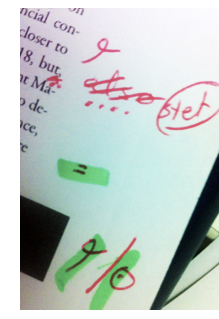 Or, how I learned to stop worrying and love the edit.
Or, how I learned to stop worrying and love the edit.



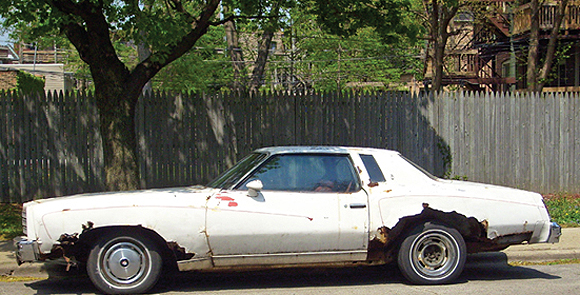
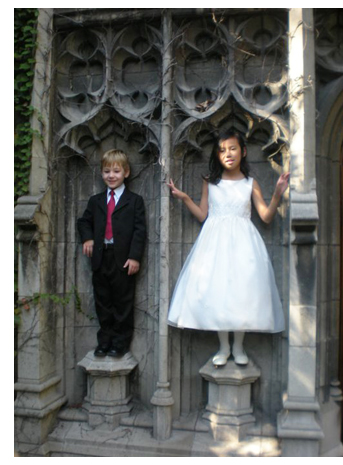 How one alum ended up with a very U of C wedding
How one alum ended up with a very U of C wedding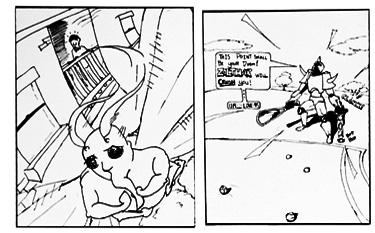 “That might be the worst reason to have an abortion I’ve ever heard.”
“That might be the worst reason to have an abortion I’ve ever heard.”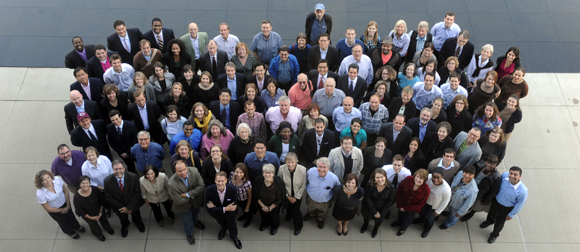
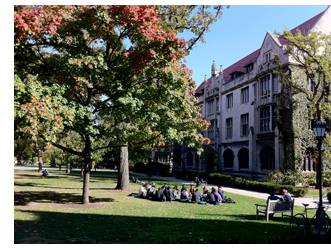 A relatively gentle winter, long and warm spring, and generally mild summer are now being followed by one of the most beautiful autumns I’ve experienced since first coming here to attend the College in 1996. Most years, of course, the city has no such luck. When William Rainey Harper was first developing his plan for the new University of Chicago, he invented the quarter system in part to take advantage of the region’s climate. Students and faculty were intended to choose which three quarters they would attend, with the expectation that the winter quarter—not summer—would be the least crowded on campus.
A relatively gentle winter, long and warm spring, and generally mild summer are now being followed by one of the most beautiful autumns I’ve experienced since first coming here to attend the College in 1996. Most years, of course, the city has no such luck. When William Rainey Harper was first developing his plan for the new University of Chicago, he invented the quarter system in part to take advantage of the region’s climate. Students and faculty were intended to choose which three quarters they would attend, with the expectation that the winter quarter—not summer—would be the least crowded on campus. When 60-some freelance writers and editors put on business suits, leave their home offices, and get together to network, it’s only a matter of time before someone lays bare the truth about self-employment.
When 60-some freelance writers and editors put on business suits, leave their home offices, and get together to network, it’s only a matter of time before someone lays bare the truth about self-employment.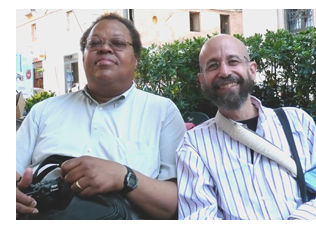 A shared quest to better understand improvisation—in art and life—joins two academics in an uncommon dialogue.
A shared quest to better understand improvisation—in art and life—joins two academics in an uncommon dialogue.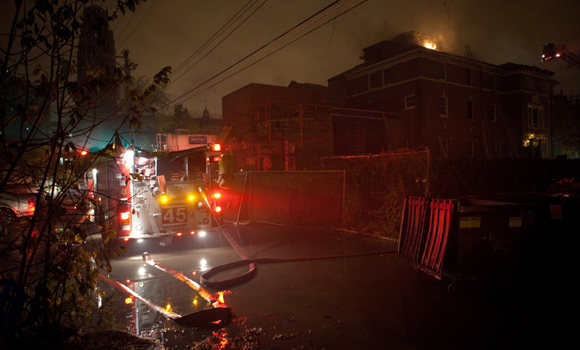
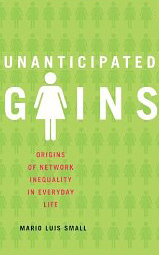 Small, the author of
Small, the author of